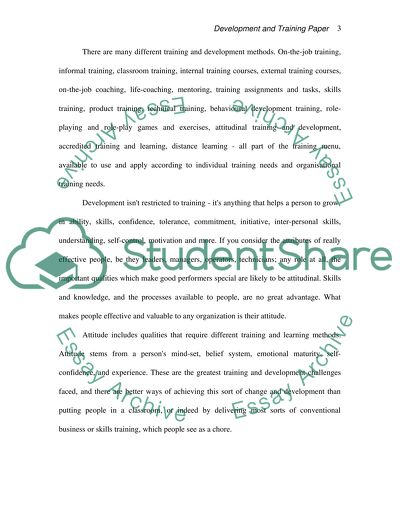Training- Developing People Essay Example | Topics and Well Written Essays - 500 words. Retrieved from https://studentshare.org/miscellaneous/1520333-training-developing-people
Training- Developing People Essay Example | Topics and Well Written Essays - 500 Words. https://studentshare.org/miscellaneous/1520333-training-developing-people.


